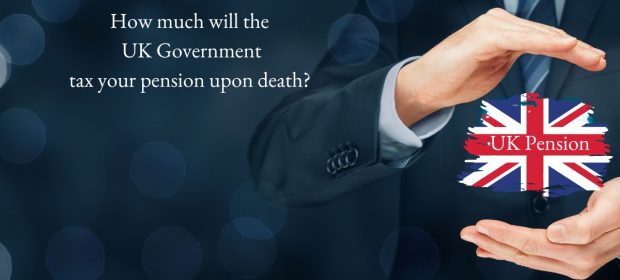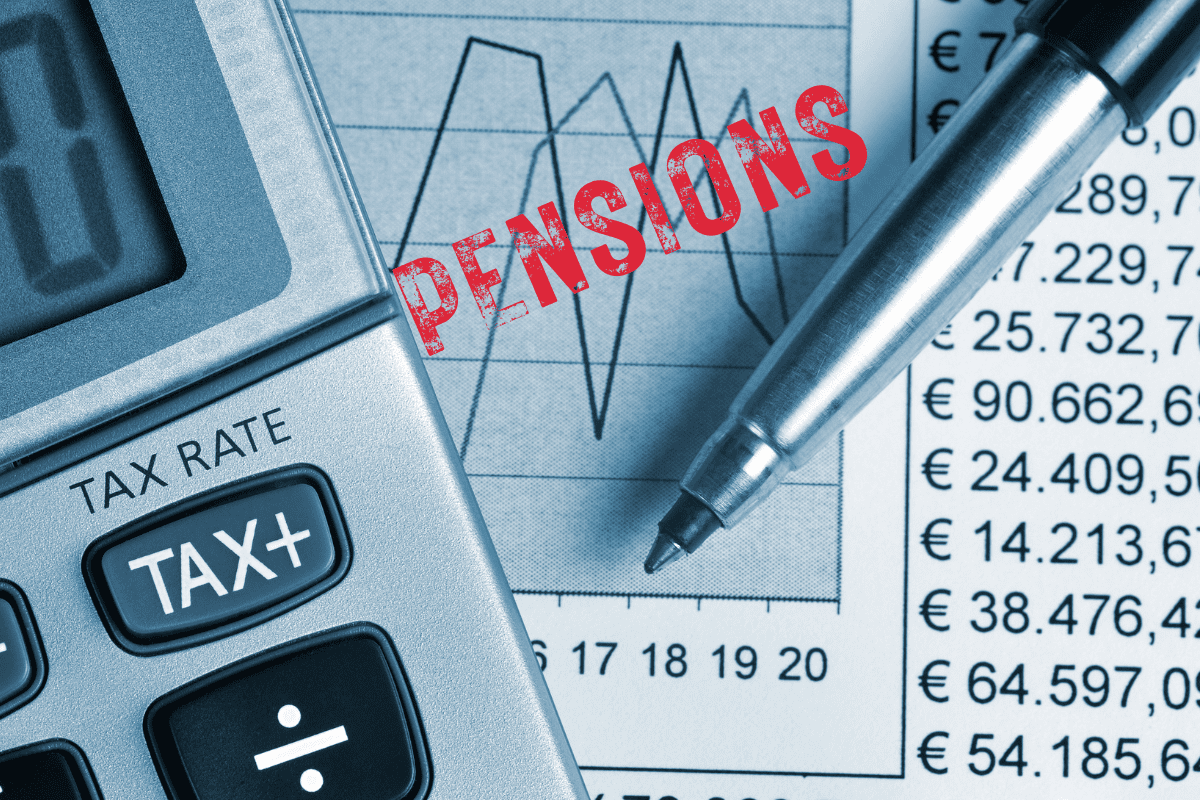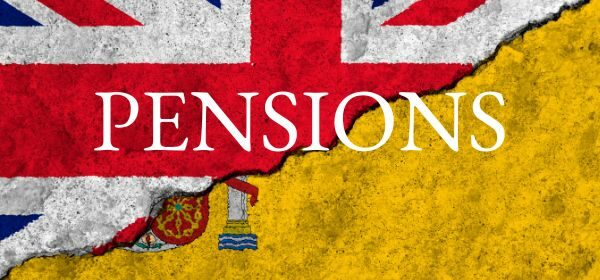Retirement options
One of the big differences when you move to Spain are the options available to you for retirement planning. In the UK/Ireland we have ISAs and private/employer pension schemes which both offer good tax savings.
By Chris Burke
This article is published on: 8th February 2023

One of the big differences when you move to Spain are the options available to you for retirement planning. In the UK/Ireland we have ISAs and private/employer pension schemes which both offer good tax savings.
ISAs are not tax free in Spain, and the annual ‘private pension allowance’ is only €1,500 per year per person! In some employer contribution schemes you can save up to €10,000 per year, but these are very uncommon. Compare that to £40,000 per year in the UK, or in Ireland up to €115,000 per person, per year! €1,500 per year is never going to achieve any serious amount of income for retirement.
The main reason for this is that in Spain, culturally people preferred to set up a company structure or accrue properties, passing these from generation to generation. Additionally, there is a lack of incentives from the authorities to entice people to save into retirement schemes.
Pensions have been popular for retirement in the UK/Ireland because of the tax savings and potential employer contributions. Take both of those away and they are not nearly as effective, which is what happens when you move to Spain. So, what can you do if you want to plan for retirement in a tax efficient manner?

For me, retirement is not just about a pension, it’s about a retirement plan. We help clients build that retirement strategy, taking into consideration the amount of income they want, making sure their assets are highly tax efficient (such as moving them away from future income tax positions) and then making sure everything is flexible and portable, because you never know what will happen in life. This is all done by using our client planning portal, where we work together to bring this to life using the following process:
This is all done by planning, where we work together to bring this to life using the following process:
We never know exactly what’s going to happen, but one thing is for sure, with proper informed planning and regular analysis, you will be much better prepared.
By Portugal team
This article is published on: 6th February 2023

Could the UK government take up to 60% of your pension?
The Institute for Fiscal Studies (IFS) published a paper on 15th December 2022 recommending that the UK government introduce a basic rate (20%) income tax charge and Inheritance Tax (IHT) at 40% on monies left in UK pensions on death, regardless of age.
Generosity of current rules
Under current rules, your pension can pass to your beneficiaries free of UK Inheritance Tax (IHT), rather than being subject to the standard 40% rate. Additionally, if you die before age 75, your beneficiaries do not need to pay any tax on drawdown/lump sums. If you die after 75, and your beneficiaries are UK tax resident, they are subject to income tax at their marginal rate.
This is what makes pensions so valuable for tax planning and advisers will usually recommend that they are maximised and preserved, and that other assets subject to IHT are used to fund spending first, to reduce the value of your estate.
What could change?
The IFS pointed out that the current tax rules on UK pensions are very generous and pensions have become a succession planning tool rather than one for retirement provision.
Experts are musing that the UK government could change these generous IHT rules; many say this is overdue. More worryingly, they are anticipating a potential change in 2023.
The IFS recommended that a basic 20% rate is applied to any pension savings left on death, irrespective of age. Also, the pension should form part of the deceased’s estate for IHT, incurring a further 40% tax.
Why the change?
Simply put, changing the pension IHT rules would fill a big hole in the Exchequer’s coffers by bringing millions of pensions into the IHT net. It would also persuade many people to start spending their pension pots and in turn, pay income tax on the drawdown during their lifetimes.
The report explained how the generous UK pension rules specifically in relation to IHT have caused a “bizarre situation” where instead of pensions primarily being an attractive structure for old-age-planning, they have become a lucrative IHT loophole. The IFS also pointed out, “if we are to have an inheritance tax at all, it should apply evenly across all forms of wealth.”
We have also seen pensions being periodically targeted over the past decades, with taxation and limits applied in the form of Annual Allowance, Money Purchase Annual Allowance and the continuing reduction of the Lifetime Allowance, from £1.8.m in 2011/2012 to £1,073,100 in the tax year 2022/2023 – all with the aim of curbing the tax benefits. There are even serious talks of bringing the increase in the UK State Pension age forward from 2046 to 2035.

Will this affect you?
Those with estates valued in excess of £325,000 (if single) or £650,000 (jointly), including pension values, would be affected by any potential change.
It is unclear how any potential change would be introduced, although the IFS has suggested phasing in changes. It is also unclear if existing benefits would be sheltered from the change or if the rules would be retrospective, thus catching all pension savers. Although, the IFS did say that even with phasing, there would be some retrospective taxation effect.
What should you do?
Of course, there is no guarantee this will happen, but if changes are imposed there may be little or no opportunity to restructure your pensions. As a non-UK resident, you can take action now and review your finances to ensure you are protected.
By David Hattersley
This article is published on: 31st August 2022

A sense of deja-vu is now apparent as the UK is experiencing a similar situation compared to the 70’s. Drawing comparisons especially for those that lived through that era would be unhelpful. However a minor point worth considering were the restrictions on the flow of capital out of the UK. For those lucky enough to travel abroad then a limit of £25.00 cash per person was the restricted limit under the Exchange Control Act 1947. My wife still has her old passport with form PP/A dated 14.02.73. One of her clients of 100 years still remembers how difficult it was to bring money into Spain to buy a plot of land.
For those that already are living in Europe or plan to in the very near future under the golden visa rules, I am not suggesting a wholesale restriction of capital movement . A difference though between the 70’s and now is the growth in personal wealth, with the primary asset being property.
The 2nd biggest asset and perhaps underrated was the growth of money purchase pensions after Mrs Thatcher came to power and for those in their 50’s & 60’s this could be quite considerable. The opportunity to “ distance work “ may have an impact on younger professionals and for those relocating here.
The current government is under extreme pressure, especially the need to raise tax revenue to balance the books, along with the alleged reports of threats to tear up all agreements with Europe.
One politically “safe option” and unlikely to cause uproar and outrage by the general public would be to curtail or even stop transfers to a QROP for those lucky to live or move to Europe.
Why would the government do this ? The payment of a pension held in the UK could be taxed at source as are the current Civil Service Pensions, thereby retaining the long-term tax revenue stream. It would mean filing tax returns both in the UK & Spain. The pension commencement lump sum could also come under review. There certainly wouldn’t be a public outcry for those “ lucky” enough to have sizeable pension pots.

The UK Budget Bill normally has to be debated and passed into law which takes about 3 months. In 2015 negative amendments were made to the QROPs rules that took effect immediately on the day after the budget and was quietly “slipped in”. A case of “ the devils always in the detail”! After all the principle of if one can get away with it once, why not try to repeat a similar process again?
There are many advantages in transferring to a QROPs and at The Spectrum IFA Group we offer and recommend a thorough assessment and report of your individual situation by our qualified specialist at no cost to you. An additional benefit is the long-term service provided as UK based advisers can no longer provide this for residents in Spain and the individual can retain control via a local adviser. A transfer to a QROP doesn’t only apply to UK nationals but any European worker that has built up a “pension pot”.I have been heavily involved in the pensions market since 1987 and have a wealth of experience in this field so if you have any concerns or interest please contact me to arrange a no-obligation initial meeting.
By Chris Burke
This article is published on: 2nd December 2021

Pension scams have cost UK expats residing in Spain millions of pounds over the last few years. The reality is that anyone can fall foul to a pension scam, irrespective of how financially savvy they think they are. The fraudsters often seem very professional and trustworthy and promise guaranteed lucrative returns, but in reality, the victims are usually left with nothing.
How do pension scams work?
Fraudsters normally contact the individual by phone, text or email. They may claim to be a fictitious company or they may even falsify their identity, for example claiming to be from HMRC (HM Revenue and Customs) or the FCA (Financial Conduct Authority). After establishing a rapport with the individual, the scammer will then try to persuade the victim to part with their pension. There are multiple different strategies for this, but each strategy effectively entails persuading the victim to transfer all or a large part of their pension to the fraudster.
The pension may be stolen outright, or it may be invested into rare, high-risk investments such as overseas bonds, infrastructure or obscure technologies. The scammer may also promise early access to the pension through various ‘loopholes’ or by offering loans to be paid back upon receipt of the pension. In this scenario, alongside potentially losing their entire pension, if they transfer it out early the victim may also face a large tax bill from HMRC. If HMRC class the early pension withdrawal as ‘unauthorised’, the tax bill can mount up to a maximum of 55%!
Only in very specific circumstances are you able to withdraw your pension early. If you are contacted by someone trying to persuade you to do this, it is likely to be a scam.
1.Research the individual/company – are they genuine?
Research the individual and the company that they work for on the internet. Depending on how they contacted you, perform a search on their phone number, email address or even their LinkedIn profile. Next, look for news articles and/or reviews on the company, ideally from an independent source (companies in the past have falsified reviews or even paid news outlets to publish positive publicity).
2. Contact a government regulated body for guidance
After conducting your own research online, why not contact an official government regulated body for additional verification? Companies such as Pension Wise, the Pensions Advisory Service or the Money Advice Service may be able to assist and ensure that the proposition is legitimate.
3. ‘If it sounds too good to be true, it probably is’
Have you been promised guaranteed returns at an exceptionally high rate? If the proposal sounds too good to be true, it probably is. Furthermore, high rates of returns often also result in high levels of risk.
4. Offers of early pension access – thoroughly research
As mentioned above, this is a very common pension scam. In only very rare case scenarios are you able to access your pension under the age of 55, so if this has been offered to you please conduct thorough due diligence. It may furthermore result in a tax bill of up to 55%.
5. Investing in an unusual asset class – be vigilant of scams
Be mindful of proposals to invest in strange and obscure assets. The assets which you invest in should all have easily accessible information available on them. For example, the funds that you invest in should all have factsheets available online (on Trustnet for example) and the shares you invest in should all be listed on a reputable exchange.
Pension advice, either managing or planning, is very important and that advice can greatly improve the amount you receive in retirement, or for your loved ones after death. What it will also give you is peace of mind that your pension money is safe and not falling foul of any risks/scams, and that you are being given ongoing, good advice.
If you would like to find out more about pensions and investments here in Spain or to talk through your situation and receive expert, factual advice, don’t hesitate to get in touch with Chris on the form below.
By Gareth Horsfall
This article is published on: 27th September 2021

Well, another summer has passed and contrary to my previous article I have decided not to become a communist, not that I think there was ever any chance of it happening anyway. Being a financial adviser pretty much excluded me from the start.
Anyway, as the hot days roll on here in Rome and the fresher ones will start soon, I was thinking how I could get started on some more serious topics of finances for residents in Italy. One thing I have come up against this summer on a number of occasions has been the subject of personal private pensions, and how they are treated for taxation, so I thought it might be a good idea to explore the different types of personal pensions which are in existence in the EU, which type Italy uses and what we can learn to help us understand the taxation of such a financial product in Italy.

EET, ETT, or TTE?
This subject can get complex, but every so often it’s good to delve in and try to make some sense of it. The main problem is that throughout the world, and even between European states, different models of taxation are applied to the different models of personal private pensions that exist. Italy has adopted one of these models, which in itself is no problem, but when we, as foreigners, move to Italy we may find that our existing private pension plans don’t fit into the same model as the Italian one. In most cases our commercialista has the ‘enviable’ job of choosing how to apply the Italian way to our scheme. It’s a bit like trying to fit a square peg into a round hole.
So what are the main models? As the title of this paragraph alluded to, there are three main models used which go under the monikers: EET, ETT and TTE.
What do these stand for?
The initials mean the following:
EET: Exempt, exempt, taxation. (The majority of EU member states adopt this approach, including the UK)
ETT: Exempt, taxation, taxation. (Italy, Sweden and Denmark adopt this model)
TEE: Taxation, taxation, exempt. (This used by Hungary and Luxembourg)
**The US also falls in the EET system**
As you might have guessed, the ‘exempt’ and ‘taxation’ tags refer to the point at which taxation is applied to the monies in your private personal pension. So, the first tag refers to the point at which the contribution is made into the pension fund (monthly or lump sum payments are treated equally), the second tag refers to the money when it is invested and accumulating within the pension (capital gains and income generated from the invested funds) and the third is the point at which one goes into retirement and starts to receive payments from it (the actual pension payment). Clear as mud? Let’s continue…

The EET model
The UK, US and many other EU member states apply the EET model (exempt, exempt, taxation), and it is my favourite model! I think it is the easiest to understand and the fairest model. I also expect that this model may also be adopted (or phased in) by Italy as part of Mario Draghi’s big tax shake up, for which we are still waiting for details (end October is the latest news).
Fundamentally, a model which allows someone to accumulate funds in a tax efficient environment throughout their working life and then be taxed at normal tax rates when they eventually come to take that money back, would seem to be the easiest and fairest way to allow individuals to accumulate as quickly and efficiently as possible. It also incentivises people to want to make more contributions into these types of savings plans for their future.
The ETT model
However, our beloved country of residence, Italy, adopts the ETT (exempt, taxation, taxation) model. Interestingly, the other two countries which adopt this model in Europe are Sweden and Denmark. I don’t think I need to point out the significant difference between the social security systems of Denmark and Sweden versus Italy, but it merely highlights the fact that Italy remains a higher taxing EU state. That being said, I love Italy, as I know a lot of you do, and it deserves much more than an critical look at its taxation system. The fact that the fund is taxed in addition to the pension payments on retirement means that their model doesn’t complement sufficiently the lower benefit payments on offer from the state through the contributi scheme, previdenza complementare’ and is not a great attraction for savers for retirement. However, you need not take my word for it. Between Italian workers, private individuals and public scheme employees, only 25% contribute to a separate private pension scheme to top up their existing benefits from the state. That figure is well below the EU average!
That low number might be due to the fact that between the low tax benefit (a maximum deduction against tax of only €5164.57 per annum), the rates of tax applied to the fund itself (between 20% and 26% depending on which fund you hold your private pension with), the restrictive ranges of investment options and the higher charges, then it comes as no surprise that not enough people are choosing to top up their pension with a private arrangement, but are more likely to buy property or find other ways of supplementing their retirement income, assuming they have surplus income after the state has taken their contribution for the state related pension.
There is, however, one advantage. The monies when received as an income payment in retirement attract a tax rate of 15% and can fall to 9% if you have contributed for 35 years to a previdenza complementare. This additional benefit stills fails to be attractive enough for people to save in this way for their future, probably because the benefit is too far in the future for many people to even consider when they have more pressing financial needs today, which brings us back to the point that the incentive for people to save today needs to correspond to a benefit received today i.e. a tax break on contributions, or no tax on the invested fund.

So what does this mean for the taxation of your non-Italian pension
As you might imagine it’s not as simple as saying that a personal pension that you own from one country will be considered the same, for tax purposes, as an Italian private pension (previdenza complementare).
The complexity lies in the fact that because Italy cannot analyse every different type of pension in the world, it is impossible for them to legislate for each one as well. Therefore, we have to use some logical thinking, but even that may be interpreted differently by the tax authorities in Italy.
At this point you might want to take a moment’s silence for your commercialista whose job it is to make that interpretation and on whose shoulders, ultimately, that decision lands. Although it is unfair to say that they don’t have any information to hand, because one client, whose commercialista was clearly on the ball, alerted her to an ‘Istanza di Interpello’ dated 27th May 2020, (click HERE, basically it is an opinion provided by the Agenzia delle Entrate on a specific case presented by a specific individual). This interpello went some way to explaining the thinking of the Agenzia behind the taxation of pensions which fall into the EET model (exempt, exempt, taxation). The ‘opinion’ was based on a UK pension.
Taxation on accumulation or not?
What it all seems to boil down to is how the pension is taxed during the accumulation phase. Italy taxes the fund during this phase but gives a preferential tax rate when the monies are drawdown. A UK pension, for example, is not taxed during the accumulation phase, but then drawdowns are taxed at regular income tax rates. So, going back to the logical thinking approach, if someone moves to Italy with a UK pension, it doesn’t make sense that they would benefit from tax efficient growth in the fund AND be provided with a preferential tax rate on drawdown. That would constitute a double tax benefit, which I doubt the tax authorities would approve of.
It doesn’t matter what you or I think!
The interesting point here is that even with all this information and supposition, the reality is that your commercialista can still choose to apply any method of taxation that falls in any of the different models because the legislation doesn’t exist to do otherwise. Therefore, the best you can do is to take a guess.
Attention, however, because the Interpello from 27th May 2020 gives a pretty good outline into the thinking of the Agenzia regarding the EET model, in that when payments are taken they should be taxed at income tax rates, not the 15% preferential tax rate. If you are advised to, or you choose to apply the 15% preferential tax model, there is always the chance that the Ageniza could come looking at some point in the future. It’s highly unlikely given the circumstances, (in my opinion), but not beyond imagination.
Given the complexity around pensions it comes as no surprise that it is often easier to bury one’s head in the sand rather than checking exactly what you have and how it should be declared. If you have any doubts then you can always contact me for a free no-obligation analysis of your situation. It is a part of the overall service package that I provide to clients and others looking to regularise their pensions arrangements in Italy. For clients, I also liaise with their commercialista directly to clarify their current choices and determine if anything should be done differently.
Staying on the subject of pensions
For anyone who is intending on living away from the UK permanently, we have over recent years been helping clients review existing UK private pension arrangements to determine whether a QROPS transfer may be appropriate. This is a type of overseas pension, which operates like a UK private pension plan, is always domiciled in Europe for EU resident individuals and is operated under an EU framework of compliance and oversight.
Since the UK’s exit from the EU we have been wondering whether the UK would stop the possibility to move pension monies from the UK into the EU to slow money flows out of the country, out of spite or any other number of reasons relating to the future relationship with the EU. To date this has not happened, but could be announced in any UK budget. (the next budget has been announced for the 27th October 2021).
There are potential tax consequences of having a UK pension plan which is now no longer ‘harmonised’ with EU legislation and there could be adverse tax consequences in the future. In addition, moving pensions to QROPS is considered removing a tie to the UK for anyone looking to remove UK domicile for inheritance tax purposes. Therefore, if you have a private personal pension arrangement that you are waiting to receive benefits from and /or drawing down from, I can offer a free analysis of the benefits of transferring it away from the UK.
Superbonus 110% – discussions on the beach
There is a lot of discussion going around at the moment about the Superbonus 110% that the Italian government is offering to bring your property into the eco-friendly age. I won’t go into details because it’s so complex that I am totally lost with the whole affair. However, I did happen to have some discussions on the beach this summer with an Italian gentleman of 73 years of age. He is a practising architect in Milan and has built buildings all over Italy. I struck up a conversation on the subject of the 110% Superbonus and how his company was coping with the bureaucracy. I was a bit taken aback by his answer that they had made a decision not get involved, at all.
His view was that the process of attaining permissions and subsequent documenting of the process is so incredibly complex and time consuming that the professionals involved in the process are forced to increase their fees substantially just to cover the cost of work and /or monitoring and reporting. He also explained that because ultimate responsibility for the Superbonus 110% will fall on the shoulders of the professional following the process, that their insurance risk against the Agenzia delle Entrate poking around in the future, and finding faults in the documentation is so high that they would have to increase their fees substantially to compensate for that risk.
This architect said that he had been talking to other firms in Milan who were charging significant fees, and that in total, between architects, geometre, and builders, costs could spiral to 40% of the amount claimed for the work.
Now, I am no expert on this particular area and I am sure that there are some of you reading this who will be able to pull this logic apart, but my point is that if you are looking at significant renovation work through the use of the Superbonus 110%, then make sure you check the small print and the costs. Remember that in addition to the costs of following the work, building material prices have sky rocketed due to Covid and continue to rise. What is claimed from the Agenzia delle Entrate may be less than the cost of work if these costs continue to rise.
Ultimately, it is the client who pays the fees and so my advice is just check that the NET amounts claimed from the Agenzia delle Entrate will cover the cost of your work and you are not going to be left with half finished properties.
And on that happy note, I will leave it for this E-zine. Life is slowly returning to normal after the long hot summer and it will shortly be time to be putting on those thick woolly socks again and wrapping up tight for the winter. In the meantime, if anything in this E-zine has piqued your interest, or you would just like to review your financial plans for life in Italy then please do get in touch on gareth.horsfall@spectrum-ifa.com or send me a message/call on +39 333 649 2356
By Chris Burke
This article is published on: 22nd July 2021


Hola
This month we are covering the following Hot Topics:
UK investments & pension law changes
Many UK based financial advisers can no longer legally look after anyone resident in Spain or the EU due to Brexit legislation, most having already written to their clients informing them of this. However, it’s not all bad news; most UK based investments including ISAs are not tax efficient in Spain/EU, with many having to be declared annually and tax paid on any gains, EVEN if you don’t access the money. This does depend completely on your circumstances and I help people analyse their personal situation, managing their UK assets or arranging for them to become Spanish compliant moving forward.
For those with UK private pensions in drawdown, every few years to receive this money you must have a UK accountant rubber stamp this to continue. So again, you will need to find someone locally to do this for you, which we can help with.
If you have any questions or need help in respect of UK based assets, please get in touch for a free, no obligation chat/review of your situation.
The rule of 72 and poor performing investments
Implementing an investment strategy is not where your investment plan finishes; it is where it begins. Without regular reviews and maintenance there is a strong risk you will finish up with much less than you should have had. Many financial advisors here in Spain are mainly remunerated when taking on a new client, not on the performance of their investment. This is where I/Spectrum differ.
One of the many key aspects of investing is to keep a keen eye on the ‘rule of 72’, which is knowing how long before your money should double in its value. To work out the ‘rule of 72’ for your investment you use the following simple formula: divide the number 72 by the average annual interest you are receiving/likely to receive and it will tell you how many years it would take for you to double your money. So, for example, if you were averaging 4% interest per year it would take around 18 years (72/4 = 18 years), at 5% around 14 years and 6% around 12 years. To put that into a real-life scenario, if we use a starting point of €100,000 and invested over a 25 year period this amount of money would give you:
To put that into context, historically inflation makes your costs double every 24 years, so if your money is not well ahead of that, in real terms your monies are just keeping their present value.
Therefore, it’s imperative you really are seeing your investments growing and working for you. If they are not, I suggest you seek a second opinion and find out how you can have these optimised, because it will make a big difference to you further down the line. The main reasons for investments failing are high maintenance costs and investments that give the financial adviser a ‘kickback’. Many people don’t always understand why their investment funds are growing but their portfolio isn’t as much, and this is usually a starting point to look at.
I work in a different way, making sure it also works for the client by not using this method, but on a transparent fee basis using the best investments & platforms for the clients; not using investment funds that give the adviser more commissions, in essence.
Spanish state pension inflation worry
Back in 2011, Spain used to have a surplus state pension fund of €66 billion. This could be looked at as ‘well, at least they had a surplus; most countries have never had one’. Just before Covid started in 2019, it was €16 billion in debt. Now the state pension system, like many others, works on the principle that current workers pay for those who are retired now. The key point here is, from a percentage perspective, Spain, compared to others in the EU, has one of the highest proportions of its GDP (total country income) contributed to its state pension, at around 12%. The average ‘replacement rate’, which is the percentage of workers final salary income that they receive in retirement, was at 72% in 2019*, whereas the average in Europe is 45%. They receive, as a percentage, much more on average for their state pension compared to their earnings than their European counterparts. This is great on one hand, however this really is a great burden on Spain to provide that level of state pension to the people.
The only way Spain can carry on providing state pensions is to “increase the retirement age even higher and decrease the amount people receive” says Concepcion Patxot Cardoner, a University of Barcelona professor, as quoted by Bloomberg. That and start to move people towards saving into their own private pensions. However, this last option and the main plan moving forward is going to be difficult to achieve in a culture where only around 26% currently save into a private pension. Compare that to the UK where the latest survey showed 65% of people contribute.
If you also take into account Spain’s tourist industry (before Covid), which is the second largest in the world employing about 2 million people and accounting for about 11 percent of the country’s GDP, you can see that things are going to need to change drastically to balance the books given the current crisis.
What does all this mean? Well, to you and I, it’s even more important that we have a plan in place, whatever that is, to make sure we have provision in retirement. I am here to talk through this with you, using professional analytics tools to help take one of the most important planning aspects of your life and break it down, step by step, making it:
If you would like to talk through your situation with someone consultative and knowledgeable, don’t hesitate to get in touch.
By Claire Cammack
This article is published on: 22nd April 2021

“When the dust settles on Brexit!” has been heard many, many times over recent months and even the last couple of years. But what of it? With the UK and some former EU partners enduring a bitter relationship, and the UK’s Prime Minister seemingly giving free rein to his ministers, it is difficult for many to see a clear direction. Though a clear direction is coming, according to the financial expert sector – and it may not be welcomed by expatriates! Generally, it is accepted that the UK will introduce hard measures to hang onto funds and to introduce punitive tax penalties for those funds that leave the kingdom.
Brexit seems to be “done and dusted”, yet where are we all? The global pandemic has clouded the issue but has forcibly created time for us to tackle the things that had been put off for too long. So what better time for a spring clean in your financial affairs.
Pensions will be hit first, according to the experts, then lump sum investments, if not simultaneously. It will not only be the UK taking measures. France, particularly, will be looking to gather what they can from expatriates living in France.

You don’t have to sit back and wait for governments to take action – and endure stress in the process! There are actions that you can take now and the first is to book a financial review with your Spectrum adviser who has a wealth of experience and resources available and at your disposal. We can quickly identify opportunities to bring your finances under your control and maximise investment and tax efficiency.
It’s not too late to act now to firm up your overall living status and ensure that all is in apple pie order for your peace of mind. Contact your Spectrum adviser for an expert appraisal of your situation.
By Michael Doyle
This article is published on: 4th March 2021

Are you planning on retiring in France or Luxembourg but have a pension in the UK?
Look no further than this article as we guide you through your options. Pensions are a pinnacle part of your retirement plan but can be a complex topic for British expatriates with rules frequently changing, so always consult with your financial adviser when deciding which plan best suits your needs.
First off, you can leave your pension as is in your existing UK pension scheme if you want. However, with the Brexit decision, you should check with your UK financial adviser and make sure they can still support you. If you want to move your funds to an international pension plan, then your best options may be opening a QROPS or SIPP account.
QROPS (Qualified Recognized Overseas Pension Scheme) allows foreign nationals who have worked in Britain to transfer their UK pensions overseas.
SIPP (International Self-Invested Personal Pension) enables someone access to greater investment choices because it is a personal pension plan based on making your own decisions. However, the pension structure is based in the UK so it’s subject to any legislative changes made by the UK government.
Benefits include, but are not limited to:
You can also try a combination between both UK and international pension plans. The main objective is to arrange your retirement in a manner where you can access your finances when you want, where you want, and in the currency of your choice. Overall, there are many things to consider when choosing your pension plan, so be sure to do your research and understand your different options before making any decisions.
It is in your best interest to act now when planning your pension scheme, so touch base with your financial adviser today to discuss your options.
By Chris Burke
This article is published on: 2nd February 2021

Many people seek financial advice, or financial planning, but if you asked them what they would like to get out of it, most people would probably say clarity on their finances, planning how to make their monies work and to have what they need in retirement, or partial retirement. Only 45% of people in Spain save into private pensions, and now with the government reducing the amount you can save that way tax efficiently, retirement planning is even more important.
Most financial advisers will look at your assets, see what you are doing, talk through why, then recommend a product to improve what you are doing. There is nothing wrong with that, in fact that is part of what we do, however this isn’t really giving people what they hoped to get out of the meetings/talks.
A key part of helping people with their finances, as well as making their monies work, is real life planning of what they have now, what their goals are and showing them how to get there. People take in and understand much more visually, as most of us know; in fact 65% of us are visual learners. That’s why it’s important that when planning your finances you consider using a visual modelling system that shows your monies, what they are doing, future monies potentially coming in, and if you save ‘X’ amount into a pension/property/investment this will be the outcome. For example, which of the below would you prefer to see as your advice?
‘We recommend you place your €50,000 with ‘X’ company, and over the years achieving ‘X’ % return. Also, save ‘X’ a month in a savings program and both of these at retirement will give you ‘X’
OR TRY THIS…
What it really comes down to is the expertise of the planning, the knowledge of the financial adviser with whom you are working, and how much is actually put into planning your finances, rather than just making what monies you have work.
This is just one example why I/we at Spectrum stand out as excellent professional financial advisers and planners, if you would like to seriously start planning your retirement and investments or review what you are doing now, don’t hesitate to get in touch, or sign up to my Newsletter below to keep well informed.
By Chris Burke
This article is published on: 1st February 2021

Now more than ever, with the UK leaving the EU, if you have a UK pension/pensions you will need to make sure that they are being properly looked after and managed. This needs to be by someone who can legally practice in the country where you are tax resident. Many UK pension companies are no longer able to give advice to those living outside of the UK, meaning you could have difficulties accessing, managing and securing your pension moving forward. A local adviser also has the advantage of knowing the local regulations, so is able to make sure you are adhering to the rules in addition to being as tax efficient as possible.
When people approach me to speak about their UK private or company pensions, they usually are not clear on:
When I ask most people what their pensions are invested in, what the annual returns are and when they last reviewed this, they usually don’t know or can’t remember. One of the reasons for this is that being outside of the UK makes all this all the more difficult to manage, and even more so now after Brexit.
Or, if they do know the answer to my questions, they have now found they cannot receive any advice from UK pension companies or UK based financial advisers moving forward.
Consider consolidating several pension pots
If you have several different pension pots, there are potential advantages if you consolidate them into one. These include:
In many cases, the first step would be to locate your pensions and then evaluate what you have, how they work, what your options are and then have these managed effectively.
I help clients consolidate their UK pensions, managing them efficiently and effectively, planning for when they want to access them integrating with their tax situation and lifestyle. We can help you achieve all this, giving ongoing advice and moving forward making sure you access you pension tax efficiently, adapting to your life as it changes along the way.
For example, if you are over 55 years of age and currently on the Beckham Law, did you know you can cash your UK pensions in, potentially paying no tax in the UK, and potentially none in Spain? This is because on the Beckham Law, all ‘non-Spanish’ income is tax exempt (this depends on your personal circumstances) and being a NON-UK resident, you have no tax liabilities there either.
If you would like to discuss your various UK pensions and what your options are, feel free to get in touch.